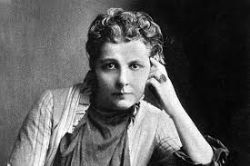Annie Besant
| Annie Besant | |
|---|---|

| |
| Annie Besant in the early 20th century | |
| Born | 01 October 1847 |
| Birthplace | London, England, United Kingdom |
| Died | 20 September 1933 (aged 85) |
| Place of death | Adyar, Madras Presidency, British India (now Chennai, Tamil Nadu) |
| Resting place | Theosophical Society Adyar, Chennai |
| Nationality | British (later naturalized in India) |
| Occupation | Social reformer, Theosophist, Nationalist Leader, Educator |
| Years active | 1870s–1933 |
| Known for | Home Rule Movement, Theosophical Society, Indian National Congress |
| Notable works | The Ancient Wisdom, The Law of Population, founding Central Hindu College |
| Awards | |
| Spouse(s) | Frank Besant (separated) |
| Children | 2 |
| Parents | William Page Wood (father), Emily Roche Morris (mother) |
| Religion | Theosophy |
| Website | |
Annie Besant (1 October 1847 – 20 September 1933) was a British social reformer, theosophist, and one of the most prominent figures in India's early nationalist movement. She was the first woman to preside over the Indian National Congress in 1917 and a major voice in India’s Home Rule Movement.[1]
Early Life and Reform Work
Born Annie Wood in London, Besant grew up in a middle-class family. She married Frank Besant, an Anglican clergyman, but their ideological differences led to separation in 1873. Afterward, she became active in the National Secular Society and Fabian Society, advocating for workers' rights, secularism, and women's emancipation.[2]
She published works on birth control and was famously tried (and acquitted) in 1877 for publishing the controversial pamphlet *The Law of Population*. She led the 1888 Bryant and May matchgirls strike, marking a turning point in labor rights for women in Britain.[3]
Role in Theosophy and Indian Education
In 1889, Besant joined the Theosophical Society, embracing Eastern philosophy and spirituality. She moved to India in 1893 and became deeply involved in Indian society. In 1898, she founded the Central Hindu College in Varanasi, which later became part of Banaras Hindu University.[4]
Nationalist Politics
In 1914, Besant began publishing the newspaper New India, advocating for Swaraj (self-rule). She co-founded the Home Rule League in 1916 with Bal Gangadhar Tilak and played a pivotal role in demanding constitutional reforms from the British Raj.
Her arrest in 1917 sparked national protests and led to her being elected the first woman President of the Indian National Congress.[5]
Later Years and Legacy
Even after independence became more radicalized under Mahatma Gandhi, Besant continued promoting education, interfaith dialogue, and international Theosophy. She passed away in 1933 at the Theosophical Society campus in Adyar, where she was cremated.
Her contributions are remembered in both Indian nationalism and global spiritualism. Roads, institutions, and awards across India bear her name.
See Also
- Theosophical Society
- Home Rule Movement
- Indian National Congress
- Central Hindu College
- Banaras Hindu University

